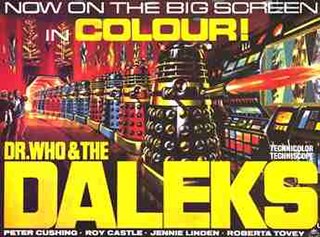
Dr. Who and the Daleks is a 1965 British science fiction film directed by Gordon Flemyng and written by Milton Subotsky, and the first of two films based on the British science-fiction television series Doctor Who. It stars Peter Cushing as Dr. Who, Roberta Tovey as Susan, Jennie Linden as Barbara, and Roy Castle as Ian. It was followed by Daleks' Invasion Earth 2150 A.D. (1966).

Daleks' Invasion Earth 2150 A.D. is a 1966 British science fiction film directed by Gordon Flemyng and written by Milton Subotsky, and the second of two films based on the British science-fiction television series Doctor Who. It stars Peter Cushing in a return to the role of the eccentric inventor and time traveller Dr. Who, Roberta Tovey as Susan, Jill Curzon as Louise and Bernard Cribbins as Tom Campbell. It is the sequel to Dr. Who and the Daleks (1965).
Amicus Productions was a British film production company, based at Shepperton Studios, England, active between 1962 and 1977. It was founded by American producers and screenwriters Milton Subotsky and Max Rosenberg.
Genesis of the Daleks is the fourth serial of the twelfth season of the British science fiction television series Doctor Who. It was written by Terry Nation and directed by David Maloney, and originally broadcast in six weekly parts from 8 March to 12 April 1975 on BBC1.
Terror of the Autons is the first serial of the eighth season of the British science fiction television series Doctor Who. It was broadcast in four weekly parts on BBC1 from 2 to 23 January 1971.

Barbara Wright is a fictional character in the British science fiction television series Doctor Who and a companion of the First Doctor. She was one of the programme's first regulars and appeared in the bulk of its first two seasons from 1963 to 1965, played by Jacqueline Hill. Prior to Hill being cast the part had originally been offered to actress Penelope Lee, who turned the role down. Barbara appeared in 16 stories. In the film version of one of the serials, Dr. Who and the Daleks (1965), Barbara was played by actress Jennie Linden, but with a very different personality and backstory, which includes her being a granddaughter of "Dr Who".
"Dalek" is the sixth episode of the revived first series of the British science fiction television programme Doctor Who. It was first broadcast on BBC One on 30 April 2005. This episode is the first appearance of the Daleks in the 21st-century revival of Doctor Who; it also marks the first appearance of Bruno Langley as companion Adam Mitchell.
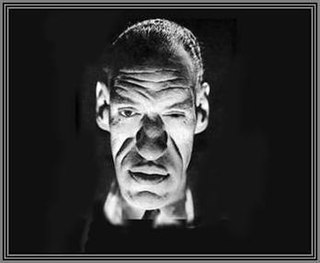
Rondo Hatton was an American journalist and actor. After writing for The Tampa Tribune, Hatton found a career in film due to his unique facial features, which were the result of acromegaly. He headlined horror films with Universal Studios near the end of his life, earning him a reputation as a cult icon.

The Chase is the eighth serial of the second season in the British science fiction television series Doctor Who. Written by Terry Nation and directed by Richard Martin, the serial was broadcast on BBC in six weekly parts from 22 May to 26 June 1965. Set in multiple time periods on several different planets, including Aridius, Earth, and Mechanus, the serial features the Dalek race travelling through time while pursuing the TARDIS and its occupants—the First Doctor and his companions Ian Chesterton, Barbara Wright, and Vicki —to kill them and seize the TARDIS for themselves. The Doctor and companions encounter several characters, including monsters Dracula and Frankenstein's monster, human astronaut Steven Taylor, and an android replica of the Doctor.
"The Parting of the Ways" is the thirteenth episode and the season finale of the revived first series of the British science fiction television programme Doctor Who. The episode was first broadcast on BBC One on 18 June 2005. It was the second episode of the two-part story. The first part, "Bad Wolf", was broadcast on 11 June.
Timothy Ray Lucas is an American film critic, biographer, novelist, screenwriter and blogger, best known for publishing and editing the video review magazine Video Watchdog.
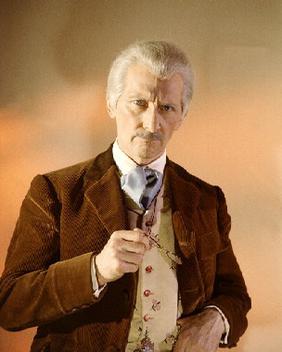
Dr. Who is a character based on the Doctor, the protagonist featuring in the long-running BBC science fiction television series Doctor Who.

The Auton trilogy is a series of direct-to-video spin-off productions based on the long running BBC science fiction series Doctor Who. The three films in the series are Auton (1997), Auton 2: Sentinel and Auton 3. They were produced by the independent BBV company and are sequels to the Third Doctor stories Spearhead from Space and Terror of the Autons. All three films have been reissued on DVD.
"Daleks in Manhattan" is the fourth episode of the third series of British science fiction television series Doctor Who, which was first broadcast on BBC One on 21 April 2007. It is part one of a two-part story. Its concluding part, "Evolution of the Daleks", was broadcast on 28 April.
"The Wedding of River Song" is the thirteenth and final episode in the sixth series of the British science fiction television series Doctor Who, and was first broadcast on BBC One on 1 October 2011. It was written by lead writer and executive producer Steven Moffat and directed by Jeremy Webb.

John Walsh is an English filmmaker and author. He is the founder of the film company Walsh Bros. Ltd. His film work on subjects such as social mobility and social justice has received two BAFTA nominations.
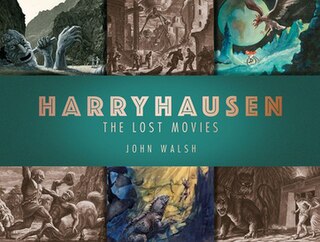
Harryhausen: The Lost Movies is a book by John Walsh published September 10, 2019. This is a guide to unrealised cinema films of Ray Harryhausen from 1940s to the 2000s.

Escape From New York The Official Story of the Film is a book by John Walsh published December 14, 2021. This is a behind the scenes look at the making of the film Escape from New York from 1981. Walsh had previously written Harryhausen: The Lost Movies and Flash Gordon: The Official Story of the Film.

Conan The Barbarian: The Official Story of the Film is the sixth book by John Walsh published August 8, 2023. This is a behind-the-scenes look at the making of the 1982 film Conan The Barbarian, directed by John Milius and starring Arnold Schwarzenegger. This large format coffee table-style book tells the story of how the original stories based on the Robert E. Howard series were adapted for cinema audiences.
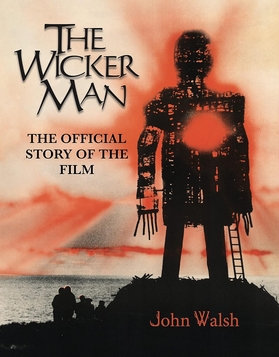
The Wicker Man: The Official Story of the Film is the sixth book by John Walsh, published October 24, 2023, as part of the film's 50th anniversary.












